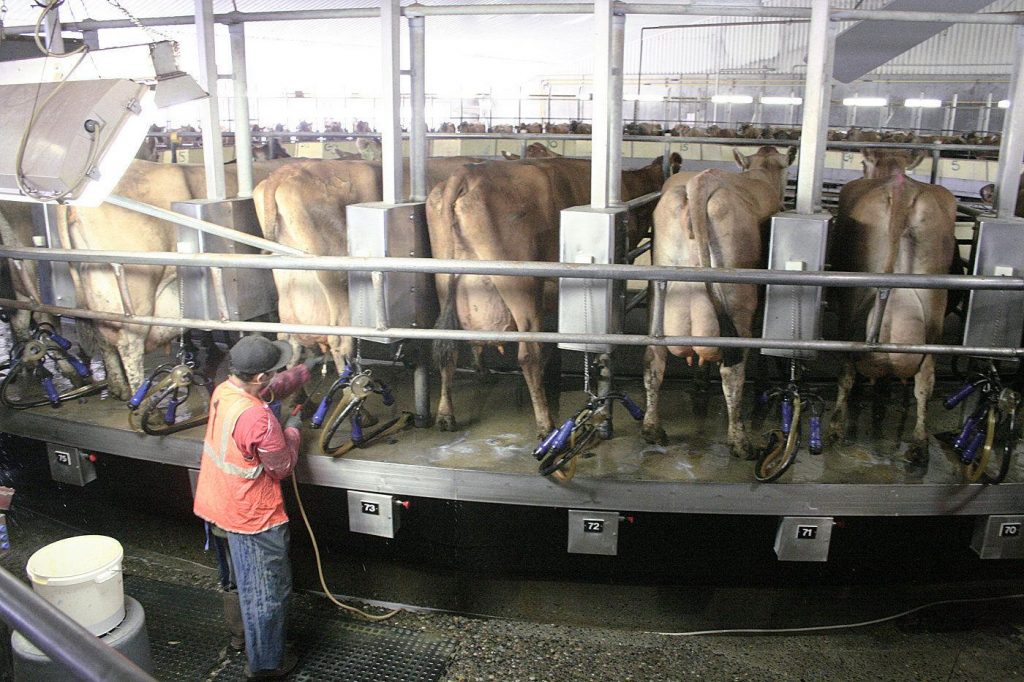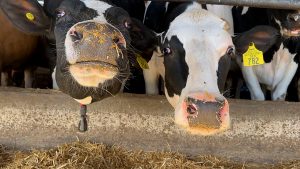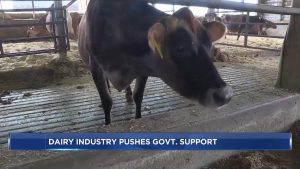
The Farm Workforce Modernization Act of 2021, passed by the House March 18 with bipartisan support, offers a path to legal status for ag laborers and their spouse and children under age 18. Permanent residency would be available to those who pay a $1,000 fine and put in additional years in farm work.
Immigration as a topic of national debate remains touchy, no less so with would-be immigrant children amassing on the U.S.-Mexican border in one of the first crises confronting the Biden administration. But Democratic control of both houses of Congress and the White House have stoked hopes for the bill’s passage.
“Certainly I think there’s a stronger chance this year than (in) recent years past,” said the president of the California Farm Bureau, Jamie Johansson, a Butte County citrus and olive grower. It and hundreds of other ag groups view the legislation as an opportunity to begin to solve the industry’s chronic labor shortage.
DIVIDED PARTY
California’s Republican delegation split over the bill: Rep. Kevin McCarthy of Bakersfield and seven others voted against it while Rep. David Valadao of Hanford joined two other GOP congressmen from the Central Valley in the 247-174 majority. The Kern County Farm Bureau declined to take a position either way.
The legislation represents a piecemeal approach to a disagreement some contend should be handled as part of a long-elusive, comprehensive reform package. It is virtually identical to a bill that passed the House in December 2019 but which never came to a vote in the Senate.
If the bill succeeds it will have done so despite the failure of repeated attempts to forge a compromise giving farms the labor they need while creating a pathway to legal status for undocumented farmworkers.
McCarthy said in a written statement he opposes the bill because it benefits people who have entered the country without permission more than those who abide U.S. immigration laws. He said first there must be border security, asserting that’s not addressed in the bill.
“I will continue working toward a stronger immigration and visa system that includes a robust ag worker program which is very important to our community, as well as a solution for individuals brought to this country illegally as children,” he stated, indirectly referencing his vote March 18 against a separate bill that would provide a path to citizenship for young immigrants. Valadao and only nine other House Republicans voted in favor.
‘COMMON SENSE’
Valadao, responding to questions by email, said as a son of immigrants and a dairy farmer he understands how desperately the ag workforce needs meaningful reform. Comprehensive immigration reform has proved too difficult, he added, and so a more targeted bill was necessary to address farmworkers’ plight.
“Ensuring that our essential farm workers already in the states receive legal status, while also simplifying and streamlining the process for future flow of workers, is just common sense,” he stated, “and I am proud to be an original cosponsor on this very important legislation.”
Farmworker advocates view the bill as an overdue solution to the threat of deportation hanging over much of the valley’s farm workforce.
United Farm Workers Foundation spokeswoman Leydy Rangel said the farmworker bill emerged as recognition of the labor of farmworkers after months of negotiation with farm groups. Such laborers aren’t in short supply as much as their movement has been limited by their fear of being forced out of the country, she said.
“Obviously the most important piece for us is making sure farmworkers have a pathway to citizenship and legal status,” she said, adding, “We do feel like this time around there’s better prospects.”
FARMER HESITATIONS
Kern County Farm Bureau President John C. Moore III said the organization remains neutral on the farmworker bill because of hesitation about the cap on guest-worker visas and the requirement that farmers be subjected to the e-verify system of checking workers’ legal authorization to work in the country.
He said the experienced-worker shortage that has driven up costs for local growers in recent years “remains an issue.”
Johansson, president of the state farm bureau, said his group also chafes at the e-verify program but that a workable immigration plan is worth the compromise.
He said the 20,000-per-year cap on H-2A visas isn’t as bad as it sounds because the bill would additionally grant 40,000 residency cards — and the limit on guest worker permits would increase by 12.5 percent yearly before disappearing entirely within 10 years.
The legislation would allow farmworkers to follow harvests and even switch to work on different crops while, he said, adding that for farmers it would streamline paperwork requirements.
LEGAL STATUS
Only people who have worked at least 180 days in agriculture during the previous two years would be eligible for legal status. They would be able to earn certification if they pass a background check and continue working in the industry for at least 100 days per year.
Those who want to additionally earn permanent residency would need to pay a $1,000 fine and keep working in ag for no less than eight years, or four for those with 10 or more years of farm work experience in the United States.
So far the bill has not been introduced in the Senate, but Johansson said Sen. Michael Crapo, R-Idaho, and Sen. Michael Bennet, D-Colorado, have pledged their support, as had Sen. Dianne Feinstein, D-California.
Johansson said he’s hopeful about the legislation.
“I’m a farmer myself,” he said, “so I’m always optimistic.”























